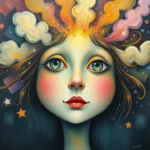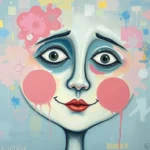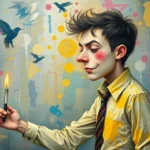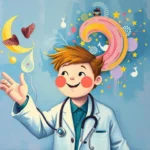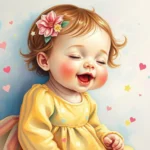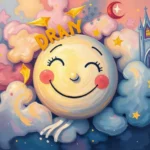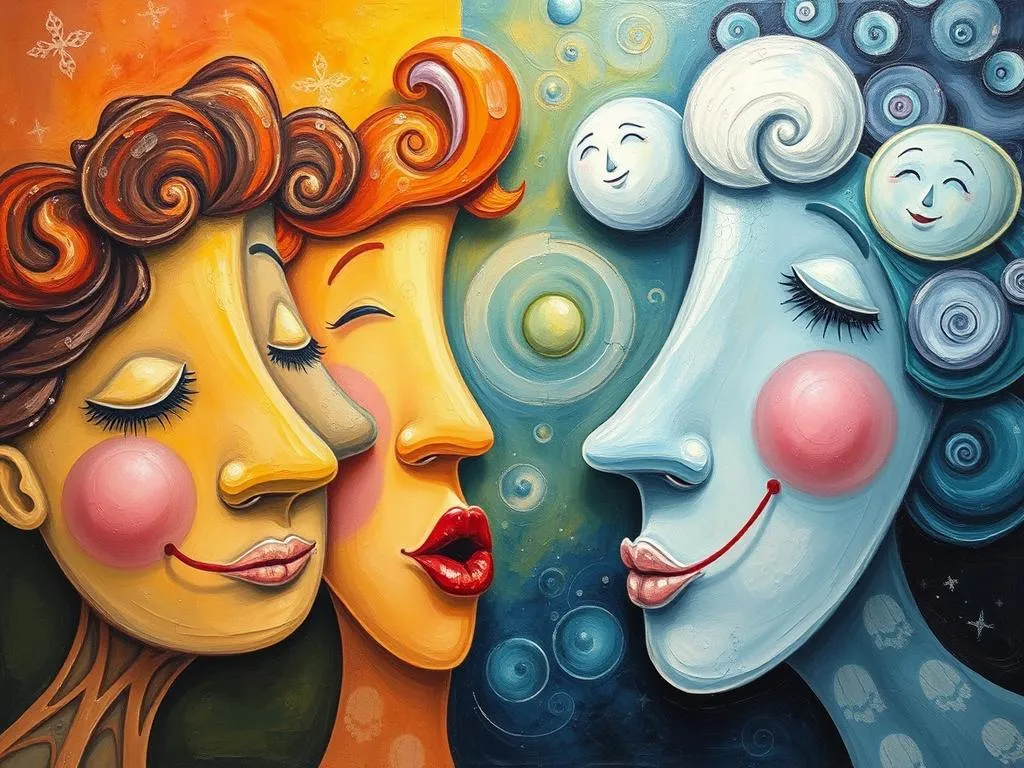
Have you ever woken up after a dream where faces of strangers, loved ones, or even your own reflection appeared vividly? You might have felt a rush of emotions or a sense of familiarity, even if you couldn’t quite place the person. The faces we encounter in our dreams often hold deeper meanings than mere representations. They can act as windows into our subconscious, revealing desires, fears, and even aspects of ourselves that we have yet to acknowledge.
In this exploration of dream symbolism, we’ll delve into the different faces we encounter in our dreams, offering insights from psychology and cultural traditions, as well as practical advice for understanding these dream manifestations. So, if you’re ready to peel back the layers of your dream world, let’s embark on this journey together.
Masked Intentions: Decoding the Symbolism of Faces
The faces that grace our dreams can be powerful symbols. They often represent not only the people they depict but also the qualities, emotions, or memories associated with them. In many cultures, faces are seen as mirrors reflecting our inner selves.
1. The Familiar Face
When you dream of someone you know well, it can signify feelings of comfort or unresolved emotions linked to that person. For instance, dreaming of a childhood friend might evoke nostalgia, indicating a longing for simpler times or unhealed wounds from the past.
2. The Stranger’s Countenance
On the contrary, encountering a stranger’s face in your dreams can be a reflection of your unexplored potential or aspects of yourself that remain hidden. This face might embody qualities you admire or fear, urging you to embrace or confront these traits in your waking life.
3. The Distorted Face
Dreams featuring distorted or grotesque faces can symbolize anxiety or unresolved trauma. Such imagery may highlight feelings of insecurity or fear of judgment. It’s a call to examine what’s troubling you and to confront those emotional shadows that you may be trying to repress.
4. The Masked Identity
Dreaming of faces obscured by masks can indicate feelings of deception or inauthenticity, either personally or in your interactions with others. This dream can be a prompt to consider whether you are being true to yourself or are hiding behind a facade.
5. Your Own Reflection
Encountering your own face in a dream can be a profound experience. It often relates to self-reflection and the process of self-discovery. It may suggest that you are coming to terms with certain aspects of your identity or that you need to embrace who you truly are.
Understanding these symbolic meanings can help you navigate your emotional landscape and provide insight into your waking life.
Faces Unveiled: Tales from the Dreamscape
Let’s explore a few scenarios that illustrate the various meanings behind the faces we encounter in dreams. Each tale holds lessons that you can apply to your own experiences.
1. The Childhood Friend
Imagine dreaming of your best friend from elementary school. In the dream, you both are laughing and reminiscing about the past. Upon waking, you feel a mix of joy and melancholy. This dream may suggest that you are longing for a sense of connection and joy that you once experienced and need to nurture those feelings in your current relationships.
2. The Mysterious Stranger
In another dream, you meet a stranger who seems oddly familiar, yet you can’t place them. They offer you wise advice, yet their face shifts and changes as you converse. This dream may indicate that you are ready to explore new facets of your personality or that you are about to embark on a transformative journey. The stranger represents untapped potential waiting to be discovered.
3. The Distorted Image
Consider a dream where you find yourself face-to-face with a distorted version of yourself—eyes wide, mouth twisted in anxiety. This image can reveal deep-seated fears about your self-image and self-worth. It prompts you to confront these insecurities and to seek healing. Reflect on what parts of your life may be causing you stress and consider ways to address them.
4. The Masked Encounter
In a different scenario, you attend a masked ball and notice faces filled with joy and laughter, but you feel disconnected. You glance at yourself in a mirror, seeing a mask that you wear. This dream might indicate feelings of isolation in social situations and a sense of not belonging. It could be a nudge to explore your authentic self and allow that person to shine through.
5. The Monochrome Reflection
Finally, imagine waking up after dreaming about seeing yourself in black and white, devoid of color. The dream represents a time of introspection where you feel your emotions are muted or suppressed. It signals a need to reconnect with your passions and creativity. Embrace the colors of your life and consider what steps you can take to reignite your enthusiasm.
These dream scenarios reveal the rich tapestry of meanings behind the faces we encounter in our sleep. Each face carries a story, offering valuable insights into our lives.
Unmasking Growth: Using Dreams for Personal Development
Understanding the symbolism and experiences associated with the faces in your dreams can lead to profound personal growth. Here are some practical steps to help you harness the power of your dreams for self-improvement.
1. Keep a Dream Journal
Start documenting your dreams as soon as you wake up. Note down the faces you encountered, their expressions, and any emotions you felt. This practice will help you uncover patterns and themes, providing clarity about your subconscious thoughts and feelings.
2. Reflect on Relationships
Use the faces in your dreams as a lens to examine your relationships. Are there unresolved feelings with certain individuals? Consider reaching out to them or working through these emotions on your own to foster healing.
3. Embrace Self-Discovery
When you dream of unfamiliar or distorted faces, take it as a cue to explore new aspects of yourself. Engage in activities that challenge you or express creativity to help you uncover hidden talents or desires.
4. Address Anxieties
For dreams featuring anxious or distorted images, take time to reflect on what’s causing you stress in your waking life. Consider speaking to someone who can help you process these emotions, whether it’s a friend or a mental health professional.
5. Authenticity Check
If you find yourself in situations with masked identities, take this as an opportunity to assess your authenticity. Are you showing up as your true self in your relationships and daily life? Consider ways to express your genuine thoughts and feelings more openly.
As you navigate the world of dreams, remember that the faces you encounter are not just random images but profound reflections of your psyche. They can guide you toward greater self-awareness and personal growth.
In closing, the faces we meet in our dreams are more than mere phantoms of our imagination; they are guides through our emotional landscapes. Each visage reveals a story and offers insights that can lead us toward better understanding ourselves and our relationships. So the next time you find yourself dreaming of faces—familiar, strange, or distorted—take a moment to reflect. They may be urging you to embrace your true self or confront unresolved emotions.
Remember, our dreams are a doorway to our innermost selves. By listening to these whispers of the subconscious, we can unlock the potential for profound transformation and healing.
